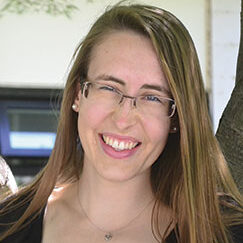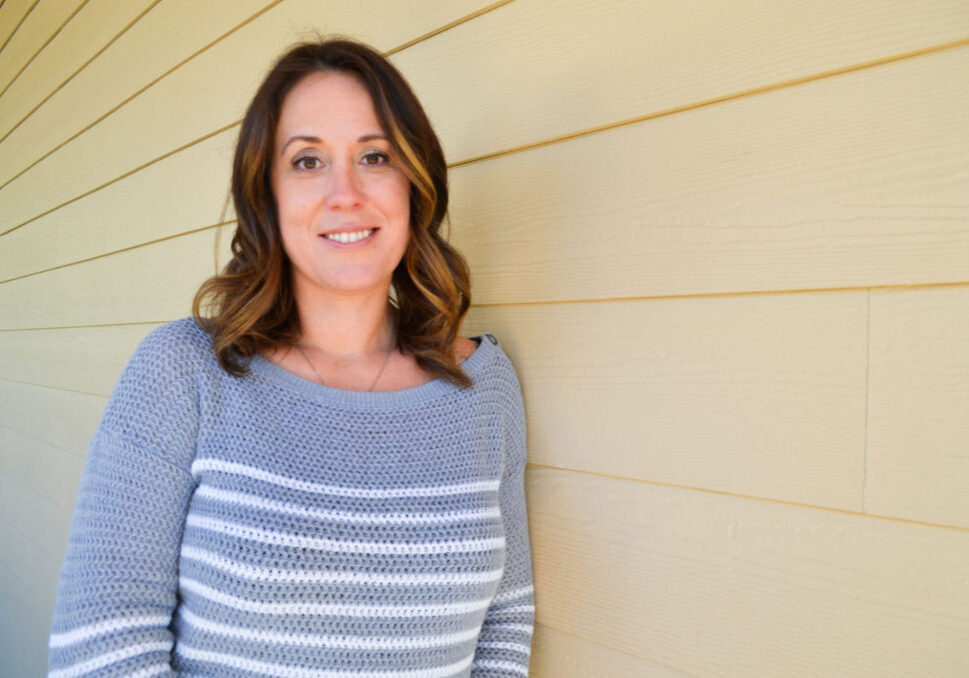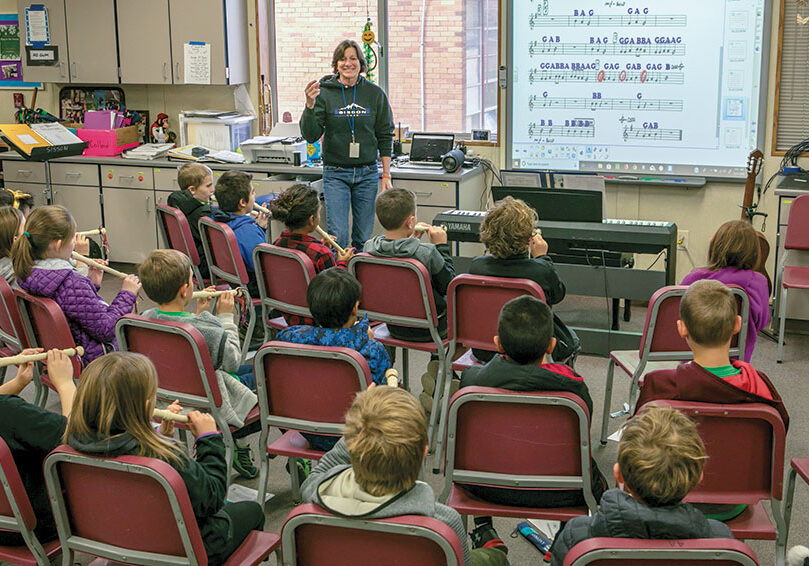Approximately 14,000 K-12 students in California are deaf or hard of hearing. Unfortunately, the dispersion of these students throughout the state often means limited access to educational supports and resources. Some deaf children do not have the opportunity to learn sign language at home, potentially putting them at risk of language deprivation which delays social and cognitive skill development. Even those who do know American Sign Language (ASL) may not find local access to education in ASL.
DHH services available in Tehama County
The deaf community in Tehama County, however, has access to a regional deaf and hard of hearing (DHH) service offered through Tehama County Department of Education (TCDE). Depending on their needs, DHH students spend varying amounts of time in the classroom of April Bennett, growing their ASL skills and studying academic content through sign language with the help of interpreters.
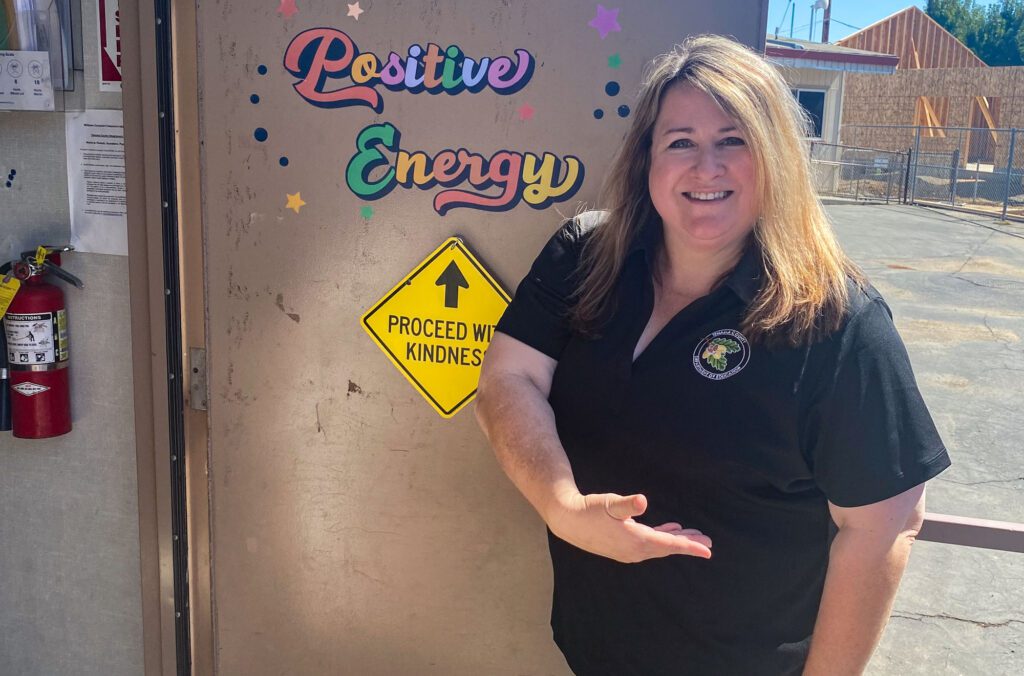
April Bennett signs “welcome” into her classroom. Photo credit Kate Hiller.
ASL is a rich full language of its own
Twenty years ago, April considered becoming fluent in ASL impossible. She first personally encountered ASL in 1994 when she sat next to ten-year-old Sarah Conrad at church. April admired how the young girl translated the sermon for her deaf father, Willis Conrad. When April wrote out a summary of the sermon and passed it to Willis, he offered to teach her ASL so she could interpret too. “I didn’t know any sign language,” April says. “And I thought, wow, for every English word I’ve got to move my hands in some way.” Intimidated, April politely declined but enjoyed getting to know the Conrads until they moved.
Years later, April started taking education classes at Shasta College. When one instructor taught the class how to sign the alphabet and a song, April discovered “ASL is its own rich, full language – not a form of English.” Intrigued, she enrolled in ASL classes and became familiar with the ASL community in Red Bluff.
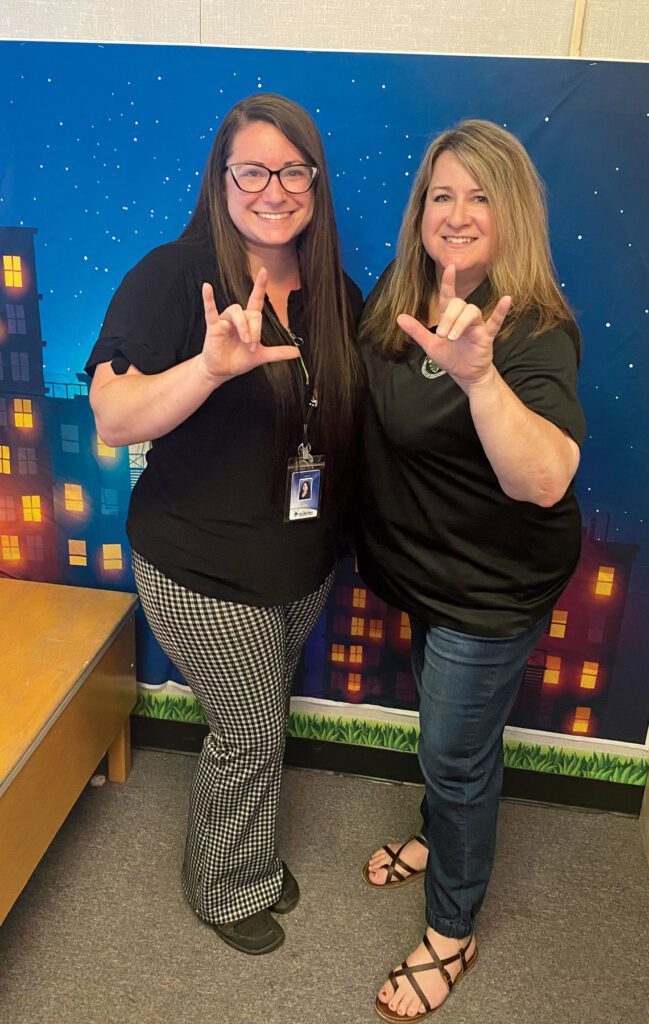
April with her daughter Linda Jo Ramirez who has been interpreting with her at Gerber Elementary for 8 years. April taught all her children to sign when they were young.
In 2005, April began working for the TCDE as an ASL interpreter. On her first day, she encountered Sarah Conrad, who had recently moved back to the area and become an interpreter for TCDE. Reconnecting with the family allowed April to eagerly accept the ASL coaching Willis offered. “My dad absolutely adored her,” Sarah remembers fondly. “She was such a good friend to him. She really took the time to interpret for him and learn about the deaf culture.”
Community connections help ease isolation of hearing loss
Two years after beginning the interpreter role, April was diagnosed with progressive hearing loss. Although stunned, April immediately felt supported by the deaf community. Dinah Scivoletti, one of her deaf friends, told her, “You’re one of us now. We understand!” Dinah encouraged April’s husband and three children to learn ASL, so the family enrolled in courses. April took comfort in being welcomed to the local deaf community and knowing she would still have communication even if she lost all her hearing.
Recognizing she would not be able to interpret if she couldn’t hear, April began working toward becoming a teacher, graduating with her master’s degree in 2013. A few years later, she began her current role as a special education teacher for DHH students, putting the once-intimidating skill of using ASL on center stage in her career.
April Bennett goes the extra mile to provide continuity of DHH services
Tehama County special education director Mark Pfaff praises “the advocacy April has for DHH kids in the school and in the community and the heart she has for people in general.” As an example of April’s passion and commitment, Mark notes she goes above and beyond by always electing to work the extra four weeks of extended education made available to special education students. “It’s so good for the kids because they have continuity and someone who really knows them,” Mark says. He also describes April’s skill as a mentor for new teachers, helping foster their enthusiasm in ways that maximize benefits to the students. “She’s an amazing person,” he says.
Deaf education requires collaboration of parents, child, service providers, school administration
Darcell Bogner, another TCDE interpreter, agrees with Mark. As a 28-year veteran of the TCDE DHH service, Darcell has seen many teachers come and go. She highlights April’s “huge heart for teaching language” and unique skill for making learning fun by inventing games and competitions. “She does a lot of research to find what will suit our students best – not just for their academic success, but their emotional success as well. She takes feedback from other staff members and structures each student’s curriculum to meet their needs.”
April deeply values her team. “In order for deaf education to work,” she says, “it needs to be a collaborative team approach. It’s a group effort – the parents, the child, the service providers and the administration. We have a really good team, and I’m lucky to be part of it.”
Outside the classroom, April loves spending time with her three adult children and two young grandsons. She participates in a local community group for deaf and hard of hearing individuals, and with the loving support of her husband, Joe, she also is just months away from finishing her Ph.D. in education, specializing in how native ASL speakers learn English. When she asked Joe if she should undertake the doctoral program, he said, “If you do it, I’ll cook dinner every night and clean up.” April jokes that offer alone was reason enough return to school!
Supported by her family and co-workers, April has turned learning sign language into a way to communicate love to DHH kids in Red Bluff and beyond.
If you are interested in learning ASL, go to NorCal Services for Deaf and Hard of Hearing; they post ASL class offerings on their events page. The Far Northern Regional Center Facebook page also has information on ASL community classes. Oklahoma School for the Deaf offers a free self-paced eight-lesson online course including lessons centered on deaf culture and conversational ASL. Shasta College offers ASL 1-4 courses.
Posted in: Be The Change
Comment Policy: All viewpoints are welcome, but comments should remain relevant. Personal attacks, profanity, and aggressive behavior are not allowed. No spam, advertising, or promoting of products/services. Please, only use your real name and limit the amount of links submitted in your comment.
You Might Also Like...
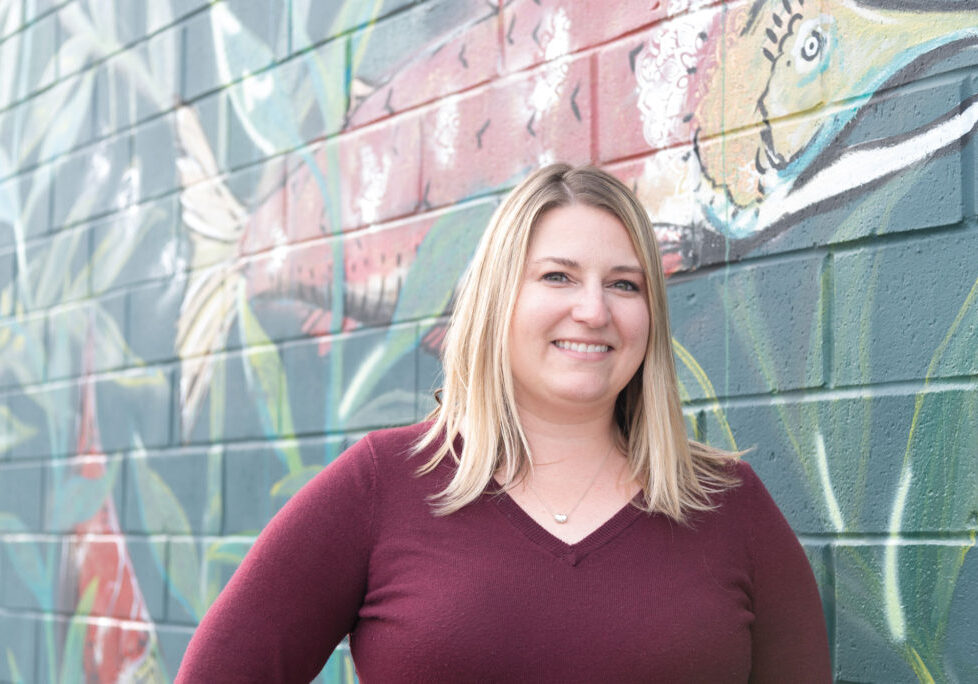
Vici Miranda: Be the Change
Making a Big Splash on Behalf of North State Kids Vici Miranda possesses what Kate Grissom describes as a “blend of grit and grin.” Since 2018, Vici’s kind and cheerful […]
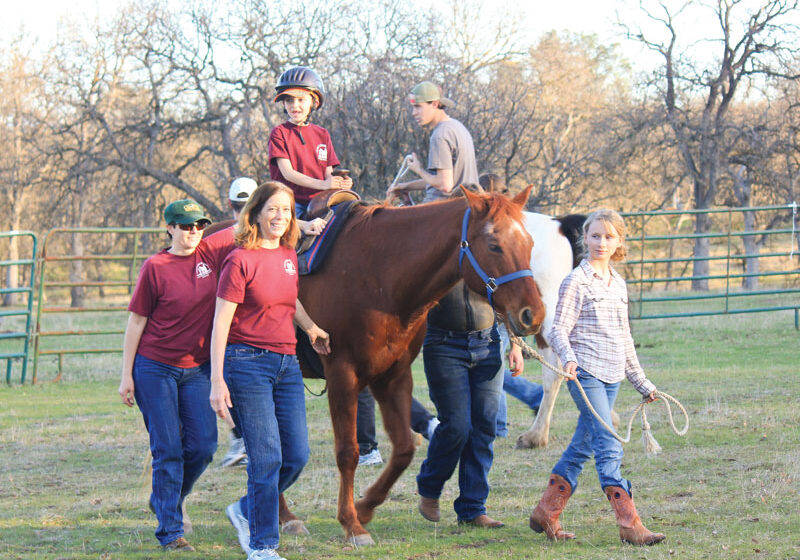
Be the Change – Eileen Reese, Shasta & Tehama Counties
As a young child, a painting of a red barn, a white horse and a mysterious figure mesmerized Eileen Reese. She would place herself inside the scene, imagining the horse […]
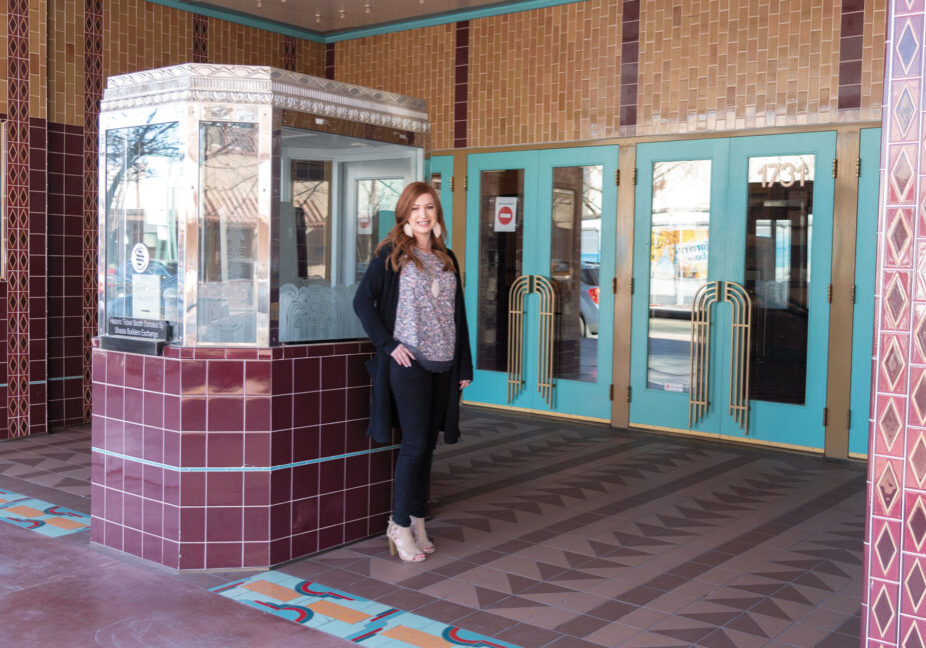
Bethany Rau – Giving And Getting The Most Out Of Life
Halfway through her student teaching experience, Bethany Rau realized she was not meant to become a teacher. Although she had reached the final stage of earning the credential she had […]
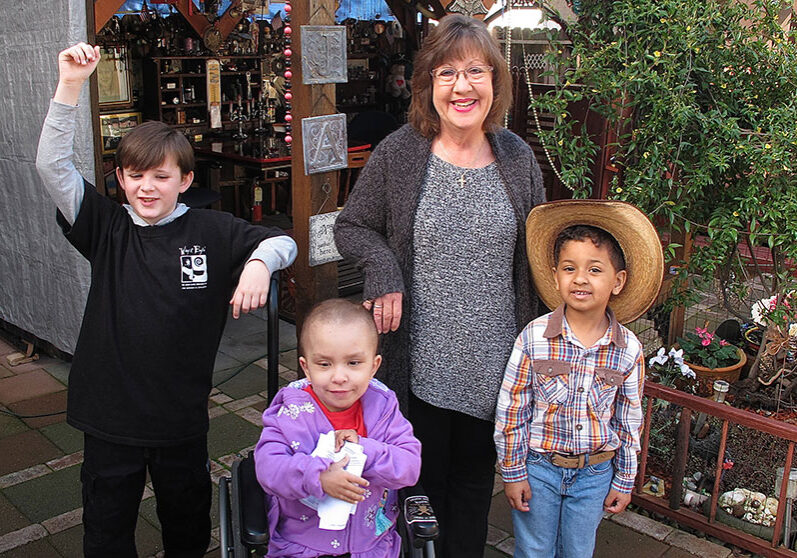
Turning Tragedy Into A Helping Hand: Georgia Alvarez
In 1991, Butte County’s Georgia Alvarez lived through every parent’s worst nightmare when her 9-year-old son, Joseph, died of leukemia. Two years later, Georgia turned that tragedy into a lifeline […]


